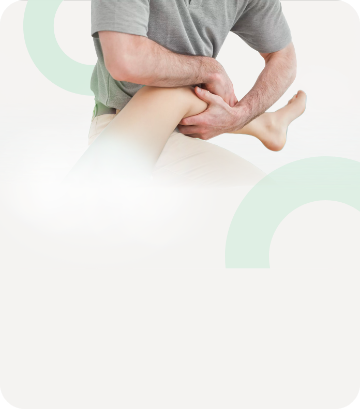Francesca Galiano
|
16/08/2022 - Last update 29/12/2022
Bruno Porcari, Margherita Russo, Antonino Naro, Cristian La Via, Massimo Pullia, Maria Accorinti, Rosaria De Luca, Rocco Salvatore Calabrò | Year 2019
Effects of osteopathic manipulative treatment on patients with multiple sclerosis, a pilot study
Pathology:
Sclerosi Multipla
Type of study:
Pilot study
Date of publication of the study’:
2019/Jan/30

Purpose of the study
- Objective: to evaluate the effects of OMT in patients with multiple sclerosis in relation to fatigue, pain and anxiety
- Measured outcomes:
- Primary: walking disability analyzed through Expanded Disability Status Scale (EDSS), daily life independence through Barthel Index (BI), 10 minute walking test, anxiety level through Hamilton anxiety rating scale (HRSD) and chronic fatigue levels through Fatigue Severity Scale (FFS)
Participants
- Numero: 20 people (11 female and 9 male)
- Criteria of inclusion: age 18-65 years, with relapsing-remitting multiple sclerosis according to the Polman criteria, mild or moderate walking disability with EDSS score between 3 and 5, Montreal Cognitive Assessment score greater or equal to 24, absence of coexisting neurological or orthopedic conditions which could interfere with deambulation, stable pharmacologic therapy for at least 6 months
- Criteria of exclusion: multiple sclerosis relapse over the 3 months preceding the recruitment process, antidepressant therapy or treatment for chronic fatigue, botulinum toxin injections in the previous 10 weeks, cardiorespiratory instability or other medical pathologies that could interfere with OMT
- Groups of study: 2 groups obtained by randomization
- Group 1: conventional rehabilitation with OMT, 10 people (6 female and 4 male, mean age 38.75 years)
- Group 2: conventional rehabilitation, 10 people (5 female and 5 male, mean age 38.08 years)
Interventions and evaluations
- Evaluation of walking disability through EDSS, of daily life independence through BI, of 10 minutes walking test, of anxiety levels through HRSD and of levels of chronic fatigue through FFS at baseline and after after 8 weeks
- Conventional rehabilitation with OMT: 3 60-minute sessions a week of rehabilitation and 2 60-minutes sessions a week of OMT
- Conventional rehabilitation alone: 5 60-minute sessions a week of rehabilitation
Results
Primary outcomes: The group with OMT saw a statistically significant reduction in chronic fatigue levels measured through FSS, a reduction also emerged in comparison to the group with rehabilitation alone.
Similarly, only the group with OMT showed a statistically significant improvement in anxiety levels measured through HRS and in the walking test.
Discussion
OMT could be a valid support to help people with multiple sclerosis and manage anxiety and fatigue. Some past studies confirm this result as they show how OMT was useful in conditions in which the movement functionality was reduced (eg, Parkinson’s disease).
Besides further studies to confirm the effects detected here, other studies are also needed to understand physiological mechanisms (eg, induced cortical plasticity) underlying these improvements.
The review of Osteopedia
By Marco Chiera
Strengths: one of the very few studies on OMT and multiple sclerosis; results potentially clinically significant, that is able to actually impact the clinical condition.
Limits: no adverse effects have been assessed; no description has been given of the type of rehabilitation carried out, and no description of the OMT, although it looks like it was not a standardized treatment; long-term studies are needed, also given the relapsing-remitting nature of multiple sclerosis.

Are you an osteopath?
Register and enjoy the membership benefits. Create your public profile and publish your studies. It's free!
Register now
School or training institution?
Register and enjoy the membership benefits. Create your public profile and publish your studies. It's free!
Register now
Do you want to become an osteopath? Are you a student?
Register and enjoy the membership benefits. Create your public profile and publish your studies. It's free!
Register now







